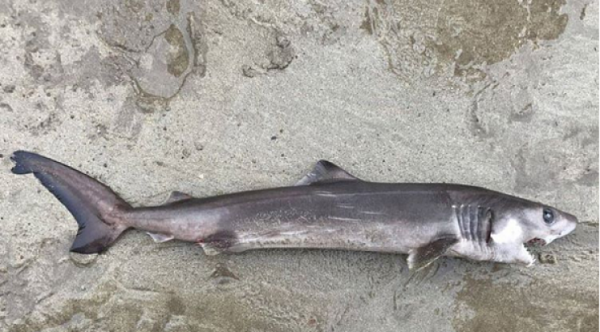
Beachgoers in Devon unexpectedly spotted a crocodile shark which is usually found in temperate waters of Australia and Brazil. Shark specialists said that the Great White shark relative must have frozen to death due to the cold British waters.
The crocodile shark was recognized in one of the Hope Cove beaches close to Plymouth. The sea creature is considered as the smallest in the Mackerel sharks family along with the Great White shark and is included by the International Union for Conservation of Nature in its roster as "nearly endangered" species.
It resembles the extraordinary serrated teeth and enormous eyes of the Great White shark. However, fully matured crocodile shark could only grow up to one meter in length and could weigh up to 13 pounds or 6 kilograms, sky News has learned.
Crocodile shark typically live in the warm Caribbean waters and gorge on averagely other small marine species including squid and fish to its diet. That is why Steven Greenfields was surprised to find the dead animal and sent National Marine Aquarium some pictures based in Plymouth.
The Shark Trust's managing director, Paul Cox stated that crocodile sharks are not that much valuable, but when it became bycatch it has a great effect on its population. He added that "For all sharks, but especially the less common ones, any information that we can get is useful so it's great that this one has been reported and identified."
According to the National Marine Aquarium curator, James Wright, crocodile shark has no record yet of being found in the UK since the endangered species only thrive in the deep waters of Australia and Brazil. It only surfaces to scour swallow waters at night to search for food, as reported by MSN.
Crocodile shark can be determined by its lengthened body that resembles a cigarette with exceptionally huge eyes and comparatively small fins. It has substantial oily liver which enables the endangered species to keep its position in the water with less struggle.



